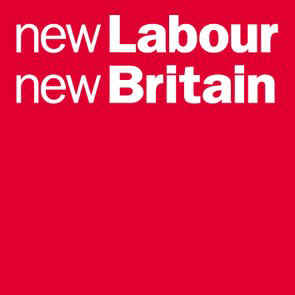 I commented in 1998, at the time of New Labour's Strategic Defence Review that, rather than considering decommissioning of our nuclear deterrent, the report simply made any alternative to continuing to have some form of nuclear defence appear too expensive. While the growing threats from non-state actors was recognised, it was deemed too risky to abandon the UK's nuclear capability. Such ideas are reiterated 8 years later. Blair called it unwise and dangerous to not have the weapons, on the basis that 'rogue states' who also possess nuclear weapons may also 'sponsor terrorism'.
I commented in 1998, at the time of New Labour's Strategic Defence Review that, rather than considering decommissioning of our nuclear deterrent, the report simply made any alternative to continuing to have some form of nuclear defence appear too expensive. While the growing threats from non-state actors was recognised, it was deemed too risky to abandon the UK's nuclear capability. Such ideas are reiterated 8 years later. Blair called it unwise and dangerous to not have the weapons, on the basis that 'rogue states' who also possess nuclear weapons may also 'sponsor terrorism'. This reminds me of a wonderful exchange between fictional PM Jim Hacker and his Head of the Civil Service Humphrey Appleby from the wonderful comedy Yes Prime Minister. The conversation first enquired when the button would be pushed, 'When Soviet troops on manoeuvres in East German got lost in the fog and ventured over the border', no, no, no, of course not. 'When a Soviet submarine enters the Thames', er, no, well, I don't know. "So when Prime Minister", Appleby demands; prevarication continues. The upshot of the conversation is that the UK government knows they would never use them, the Soviet government knows the UK will never use them, the only people who believe they are a form of protection is the UK public. Perhaps again the rhetoric suggests that something is being done to prevent terrorism.
While it would be amusing to rewrite the exchange to include Tony Blair, 'so you suspect Pakistan of not acting as forcefully as it could against Al Queda; the button Prime Minister?', perhaps this misses the point. That while the deterrent may be a symbolic message that defence is being taken seriously, it has greater symbolic value in the post Cold War world.
What is this value, it is a badge of honour. In having nuclear weapons it places this small nation among the elite. It means that there is a seat at the top table when world leaders meet, the voice is slightly louder among the rest, the perception of power increases. Yet here also is the danger. If there was a visible state threat that required this form of deterrent,and one could envisage the usage of the weapon, then perhaps the position would be tenable. The problem is that many nations, North Korea and Iran to name the current suspected aspirants, previously India and Pakistan, want a slice of the pie. If all you need is a badge saying 'I gotta Nuke' to be heard on the world stage is it any wonder that nations who have felt marginalised historically want to wear the same badge, share the glow of the spotlight of power and dine on the meat with the kings of the world.
I accept this is an argument for unilateral disarmament. I am happy to state I have never been in favour of these weapons, their destructive capability, and doubt how these weapons can be used after the effects which can still be seen on the descendants of the residents of Hiroshima and Nagasaki. But, what makes the position seem more relevant is the fact that the enemies that are faced in the modern world are either impotent, as Iraq was, or unconnected to states. We cannot 'nuke' terrorism, equally we cannot 'nuke' global warming, so why else would any state leader want to waste money on such weapons?
Imagine the scene, the meeting of the United Nations. Prime Minister Tony Blair approaches the banquet hall. Take a seat anywhere the usher suggests, a quick flash of the badge. "Oh Mr Blair, nuclear defence, that will do nicely, this way to the top table sir!"


